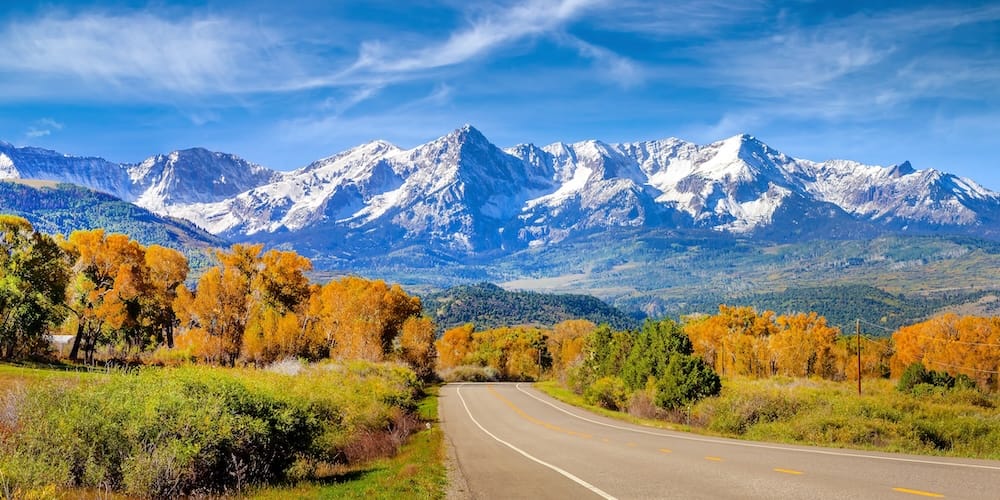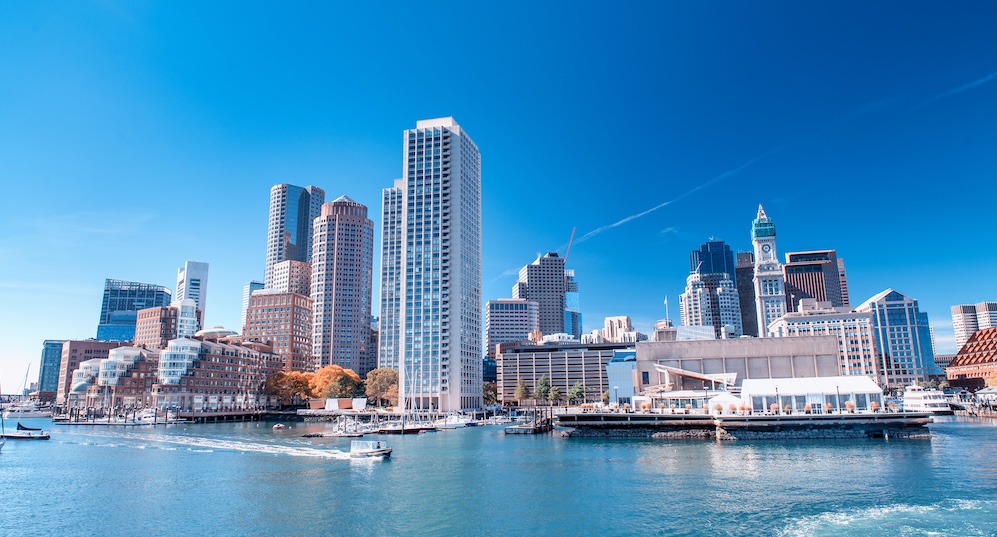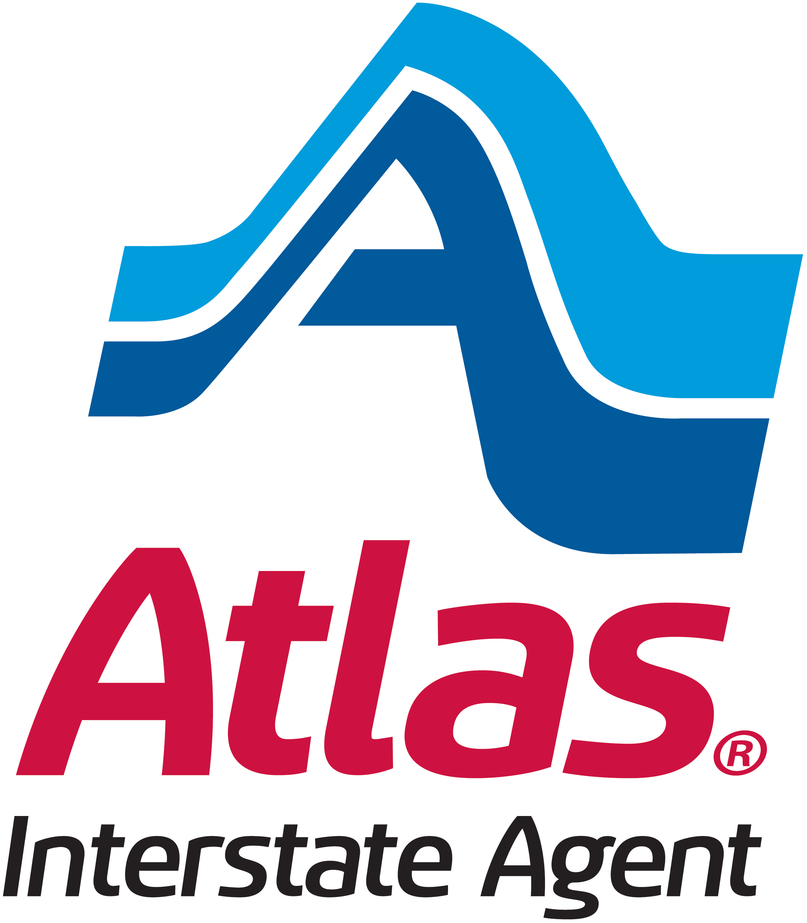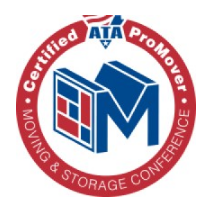The Ultimate Moving Guide to Colorado: Planning, Costs & Areas

Colorado beckons with snow-capped peaks piercing azure skies and thriving cities nestled against dramatic mountain backdrops. This remarkable state delivers an exceptional quality of life, where outdoor adventure meets economic prosperity – evidenced by median household incomes soaring $15,000 above the national average.
The journey to your new Colorado home encompasses more than just crossing state lines. From Denver’s thriving urban environment to peaceful mountain towns, each location provides unique opportunities and benefits for residents.
Our extensive relocation expertise at Nelson Westerberg, refined through 110 years of moving experience, ensures your transition captures the wonderful opportunities Colorado offers – whether you’re moving across town, state lines, or country.
We understand that adapting to Colorado’s distinct culture means embracing both its high-altitude lifestyle and wellness-focused communities. Your successful relocation journey starts with understanding the local housing options, exploring job opportunities that fit your skills, and connecting with community resources tailored to your goals.
Let our seasoned team guide you through every step, from initial planning to your final arrival in the Centennial State, ensuring your Colorado dreams become reality with the same precision and care we’ve provided to countless families and professionals before you.
Essential Pre-Move Planning
Planning a move to Colorado requires careful preparation to ensure a smooth transition into your new Rocky Mountain lifestyle. Our informative guide outlines the essential steps for your move to this growing state.
Your Moving Timeline
Start your moving preparations 8-12 weeks before your planned relocation date. Begin with research into your desired Colorado location and secure employment—particularly important given the state’s higher-than-average cost of living.
Key timeline activities include:
- 8-12 weeks out: Research locations and employment opportunities
- 6-8 weeks out: Declutter your current home and donate unused items
- 4-6 weeks out: Book professional moving services
- 2-4 weeks out: Schedule utility transfers
- 1-2 weeks out: Begin packing non-essential items
Note: Summer represents peak moving season in Colorado, so book your services well in advance to secure preferred dates and rates.
Required Documentation
Essential documents for establishing Colorado residency include:
- Current driver’s license
- Vehicle registration
- Proof of insurance
- Social security card
- Medical records
- School transcripts
- Professional certifications
Important deadlines:
- 90 days to obtain a Colorado driver’s license
- 30 days to register your vehicle
Moving Budget Considerations
Colorado’s distinct economic setting necessitates thoughtful financial strategy. Your detailed moving budget should cover:
Initial Costs:
- Security deposits
- Utility connection fees
- Professional moving services
- Temporary storage (if needed)
Housing Costs:
- Home purchases often exceed $500,000
- Monthly rent ranges from $2,000 to $3,000
- Utility deposits and first month’s payments
- Altitude-related purchases (humidifiers, specialized gear)
What To Pack For Colorado Life
Colorado’s diverse climate necessitates flexible preparation. Pack strategically with these essentials:
Vehicle Preparation:
- Well-maintained vehicle
- All-weather tires
- Emergency road kit
Climate Essentials:
- High-quality winter gear
- UV-protective clothing
- Moisture-wicking layers
- High-SPF sunscreen
- UV-protective sunglasses
- Humidifiers
- Moisturizers
- Basic altitude sickness remedies
Colorado’s elevation affects daily living, from cooking times to water consumption. Consider the state’s environmental consciousness when packing, and prioritize items that support an active, outdoor-oriented lifestyle. Donate or dispose of items that won’t serve your new mountain lifestyle, focusing on versatile, durable goods that
Colorado’s Living Costs And Financial Environment
Understanding Colorado’s financial environment helps create a solid foundation for your relocation plans. The state combines robust economic opportunities with distinct living costs that vary significantly by region.
Housing Market Analysis
Colorado’s active housing market reflects its strong appeal and continued growth. The median home price exceeds $500,000, creating a competitive environment for buyers. Consider these market characteristics:
- Premium markets: Denver and Boulder lead with highest property values
- Mid-range options: Suburban communities offer balanced price points
- Value opportunities: Rural areas provide more affordable housing choices
Collaborating with experienced local real estate professionals can be incredibly helpful in learning about the market conditions and finding neighborhoods with promising potential for growth.
Monthly Living Expenses
Colorado’s cost of living requires thoughtful budgeting across several key categories:
- Utilities: Seasonal variations affect costs significantly
- Winter heating demands in mountain regions
- Summer cooling needs in urban areas
- Transportation:
- Public transit available in major cities
- Personal vehicle often necessary for suburban/mountain areas
- Groceries:
- Prices typically exceed national average
- Higher costs in remote and elevated locations
Tax Considerations
Colorado’s tax structure offers distinct advantages for residents:
- Income Tax: Straightforward flat rate system
- Property Tax: Below national average, benefiting homeowners
- Sales Tax:
- State rate remains relatively low
- Combined rates (state, county, city) can reach 11.2%
- Varies significantly by location
Salary Expectations
Colorado’s robust job market supports its cost of living with strong earning potential. The median household income of $82,611 surpasses the national average by approximately $15,000. Key highlights include:
- Thriving Industries:
- Aerospace
- Bioscience
- Financial services
- Technology
- Employment Climate:
- 3.1% unemployment rate (national: 3.9%)
- Abundant growth opportunities
- Increasing remote work options
The increase in flexible work arrangements enables residents to benefit from competitive salaries while selecting more affordable communities outside major urban areas. When evaluating employment offers, consider the complete compensation packages, including benefits that can assist with managing living expenses.
Top Cities To Call Home
Colorado offers diverse living environments to suit every lifestyle. From bustling urban centers to tranquil mountain communities, each region offers distinctive possibilities for prospective residents.
Metro Areas Overview
Denver, Colorado’s capital, stands as the state’s premier metropolitan hub. The city provides a variety of career options and urban amenities, supported by an efficient public transportation network featuring light rail and buses. For those looking to move, this Denver relocation guide offers valuable insights to ease the transition.
Key Denver highlights:
- Thriving Denver Tech Center (DTC) employment hub
- Strong technology and financial services sectors
- Extensive cultural attractions and dining options
- Well-connected public transit infrastructure
Boulder offers a unique combination of technology and outdoor living. While housing costs rank among Colorado’s highest, residents enjoy:
- Flourishing tech industry
- World-class outdoor recreation
- Strong emphasis on wellness and sustainability
- Active startup community
Colorado Springs offers a more relaxed atmosphere without sacrificing urban conveniences. The city features:
- Robust aerospace and defense industries
- Stable employment opportunities
- Easy access to outdoor activities
- More affordable housing options than Denver
Fort Collins, home to Colorado State University, is an engaging and active college community. The city excels in:
- Innovation and research initiatives
- Bioscience and clean energy development
- Active cultural scene
- Strong sense of community
Suburban Highlights
Denver’s suburban communities provide an ideal balance of space, affordability, and convenience. Littleton and Centennial, located south of Denver, feature:
- Top-rated school systems
- Family-oriented neighborhoods
- Quick access to downtown
- Well-maintained parks and recreation facilities
Aurora’s diverse community offers:
- Moderate housing prices
- Multicultural atmosphere
- Varied residential options
- Strong retail presence
Westminster and Arvada, positioned between Denver and Boulder, attract professionals with:
- Strategic location for dual-city commuters
- Extensive trail networks
- Modern retail corridors
- Well-designed residential areas
Lakewood combines established charm with contemporary amenities, offering:
- Mix of historic and modern neighborhoods
- Proximity to mountain recreation
- Easy downtown Denver access
- Strong community programs
Mountain Town Living
Colorado’s mountain communities deliver unparalleled lifestyle opportunities. Breckenridge and Vail showcase:
- World-class skiing facilities
- Year-round outdoor activities
- Luxury amenities
- Resort-town atmosphere
For more affordable mountain living, consider Leadville and Salida, featuring:
- Authentic Colorado character
- Lower cost of living
- Strong community bonds
- Outstanding outdoor access
Durango, in southwestern Colorado, provides:
- Historic downtown district
- Excellent skiing and hiking options
- Small-city conveniences
- Rich cultural heritage
Steamboat Springs offers a unique mix of:
- Renowned skiing opportunities
- Genuine ranching culture
- Family-friendly atmosphere
- Year-round recreation options
Local Move Specifics
Even a local move requires thoughtful planning and attention to detail. Understanding the specific requirements of relocating within Colorado helps ensure a seamless transition to your new home.
Same-City Relocation Tips
Moving within a Colorado city offers both unique advantages and considerations. Here’s what to keep in mind:
- Schedule your move during off-peak traffic hours, especially in busy metropolitan areas like Denver or Colorado Springs
- Consider seasonal timing:
- Winter moves often feature lower rates
- Spring and fall provide more predictable weather conditions
- Summer offers extended daylight hours
Visit your new location multiple times to assess:
- Parking availability at different times
- Building access points and restrictions
- Potential moving truck limitations
- Neighborhood activity patterns
Neighborhood Transitions
Colorado neighborhoods each possess distinct characteristics that influence moving logistics. Key considerations include:
- Local regulations:
- Parking permit requirements
- Building access protocols
- HOA moving guidelines
- Environmental factors:
- Altitude variations between locations
- Impact on packing sensitive items
- Weather considerations at different elevations
Whether relocating from Littleton to downtown Denver or between other areas, account for differences in accessibility, parking availability, and building requirements.
Local Moving Services
Professional moving services transform a seemingly simple local move into a well-orchestrated experience. Quality local moving services include:
- Specialized services:
- High-altitude packing techniques
- Temperature-sensitive item handling
- Furniture disassembly and reassembly
- Climate-controlled storage options
- Essential considerations for choosing movers:
- Verified experience in your specific area
- Knowledge of local building codes
- Understanding of elevation challenges Full insurance protection
- Expertise with Colorado weather conditions
Professional movers equipped with proper tools and knowledge of Colorado’s varied terrain ensure protection for your belongings throughout the relocation process. Their familiarity with local conditions and regulations provides peace of mind during your transition.
Interstate Move Planning
Planning an interstate move to Colorado requires careful consideration of various factors, from altitude changes to seasonal weather patterns. Let’s explore the essential elements of a successful cross-state relocation.
Cross-State Preparations
Preparing for an interstate move to Colorado involves strategic planning beyond basic packing. Research your destination’s specific altitude to prepare for both moving logistics and personal adjustment. Here’s what you need to focus on:
- Create a detailed inventory of your belongings
- Assess items sensitive to climate and elevation changes
- Begin preparations 8-12 weeks before moving day
- Document valuable items with photos and descriptions
Transportation Options
Moving to Colorado presents several reliable transportation choices to suit different needs and budgets:
Professional Moving Services:
Detailed packing and transportation services
- Expert handling of belongings for elevation changes
- Climate-controlled options for sensitive items
- Professional navigation of mountain routes
Self-Moving Considerations:
- Rental trucks require careful route planning
- Mountain passes demand vehicle preparation
- Mandatory snow equipment during winter months
- Additional insurance coverage recommendations
Legal Requirements
Your move to Colorado includes several important legal obligations:
- Driver’s license update within 90 days of residency
- Vehicle registration completion within 90 days
- Emissions testing requirements in designated counties
- Insurance coverage verification and updates
Timeline Management
A strategic timeline ensures a smooth transition to your Colorado home. Consider these essential factors:
Housing and Employment:
- Secure housing early due to competitive market conditions
- Research employment opportunities
- Plan for higher-than-average living costs
- Schedule utility connections and transfers
Seasonal Considerations:
- Spring and fall offer optimal moving conditions
- Allow extra time for high-altitude adjustment
- Plan for potential weather delays
- Schedule delivery windows accordingly
Nelson Westerberg’s professional team specializes in Colorado interstate moves, offering expertise in mountain navigation, seasonal planning, and high-altitude considerations. Our moving services carefully handle your belongings to navigate Colorado’s distinct geographic and climate conditions, ensuring a smooth and secure relocation.
Long-Distance Move Strategy
Making a cross-country move to Colorado requires thorough planning and careful consideration to ensure a smooth transition. Here’s your guide to planning a smooth moving long-distances to the Centennial State.
Cross-Country Planning
A successful move to Colorado requires thoughtful preparation 12-16 weeks before your intended move date. Consider these essential planning elements:
- Create a week-by-week moving timeline and checklist
- Research Colorado’s unique geographical challenges
- Account for altitude changes and regional weather variations
- Sort belongings based on Colorado’s lifestyle needs
- Plan for outdoor equipment storage and seasonal gear
Colorado’s outdoor-focused lifestyle might influence which items you choose to bring. Take time to evaluate your belongings and organize them into clear categories: keep, sell, or donate.
Professional Moving Services
Professional moving services are invaluable for cross-country relocations to Colorado. Nelson Westerberg brings over a century of expertise to handle complex long-distance moves with precision and care. Our offerings include:
- Specialized packing techniques for high-altitude transport
- Temperature-sensitive item protection
- Strategic mountain pass routing
- Real-time shipment tracking technology
- Professional moving coordination
Each aspect of your move receives careful attention, ensuring your belongings arrive safely at your Colorado destination.
Cost Considerations
Your Colorado relocation budget should account for both moving expenses and future living costs. Key financial factors include:
Moving Costs:
- Transportation and labor fees
- Packing materials and services
- Moving insurance coverage
- Temporary storage solutions
- Emergency fund allocation
Colorado Living Expenses:
- Housing costs (median home prices exceed $500,000)
- Monthly rental rates ($2,000-$3,000 average)
- Utility setup fees
- Initial grocery and supplies budget
Consider scheduling your move during off-peak seasons to optimize costs and housing availability.
Arrival Preparation
A well-planned arrival strategy helps ensure a smooth transition to your new Colorado home. Essential preparation steps include:
Pre-Arrival Tasks:
- Schedule utility connections
- Plan for altitude acclimation
- Arrange professional unpacking services
- Create a “first week” essentials box
- Research local medical facilities
First Week Priorities:
- Allow time for rest and adjustment
- Organize essential living spaces first
- Familiarize yourself with the neighborhood
- Begin altitude acclimation activities gradually
Nelson Westerberg’s experienced team understands the unique challenges of Colorado relocations. Our complete moving services guarantee your cross-country transition is managed with skill and attention, including specialized packing and strategic transportation planning.
Colorado’s Professional Scene
Colorado offers a wide range of professional opportunities across various industries, providing excellent career prospects for those seeking growth and development. With a median household income of $82,611 – significantly higher than the national average – and a low unemployment rate of 3.1%, the state provides an ideal environment for professional growth.
Major Industries
Colorado’s thriving economy is built on several key industries:
- Aerospace and Defense: Leading-edge research and development facilities
- Bioscience: Innovative medical research and healthcare technology
- Financial Services: Expanding presence in urban centers
- Energy: Both traditional and renewable energy sectors
- Food and Agriculture: Sustainable farming and food production
- Technology: Growing tech hub with numerous startups and established companies
This industrial diversity creates a stable job market and provides professionals with multiple specialization paths.
Job Market Trends
Colorado’s job market consistently outperforms national averages, with promising growth projections for the future. Key trends include:
- Strong demand in warehousing and logistics
- Expanding healthcare sector opportunities
- Growing food production industry
- Competitive compensation packages
- Active recruitment of skilled professionals
- Lower-than-average unemployment rates
Career Growth Opportunities
Professional advancement flourishes in Colorado’s innovation-driven economy. Major corporations, including Fortune 100 companies, offer:
- Robust professional development programs
- Clear advancement pathways
- Mentorship opportunities
- Leadership development initiatives
- Competitive benefits packages
- Work-life balance programs
The state’s emphasis on innovation creates numerous opportunities in emerging fields, while established organizations provide structured career advancement paths.
Remote Work Culture
Colorado has established itself as a remote work haven with modern infrastructure and supportive professional environments. The state offers:
- High-speed internet connectivity
- Flexible work arrangements
- Hybrid work models
- Collaborative workspaces
- Digital networking opportunities
- Strong professional communities
This versatility, combined with Colorado’s renowned outdoor lifestyle and wellness culture, creates an optimal setting for professionals seeking to balance their work and personal commitments.
Nelson Westerberg recognizes the significance of a seamless integration into Colorado’s professional setting. Our moving services align with your career-related timing and requirements, ensuring your professional life continues smoothly during relocation.
Daily Life In Colorado
Living in Colorado provides a distinctive mix of outdoor adventure, cultural experiences, and a wellness-oriented lifestyle that appeals to individuals from diverse backgrounds. The state consistently ranks among the most desirable places to live, offering an enviable balance of professional opportunities and recreational pursuits.
Four-Season Living
Colorado’s diverse climate provides opportunities throughout the year, with an average of 300 sunny days annually. Each season brings its own distinct charm:
- Winter: World-class skiing and snow sports across renowned resorts
- Spring: Abundant wildflower blooms covering mountain meadows
- Summer: Perfect conditions for hiking, camping, and outdoor festivals
- Autumn: Breathtaking foliage displays painting the scenery in golden hues
New residents should note the altitude adjustment period. The higher elevation may initially cause mild discomfort, including headaches and dizziness. Taking time to acclimate and maintain proper hydration during your first few weeks will help ease the transition.
Recreation Options
Colorado’s diverse natural settings provide abundant opportunities for outdoor enthusiasts of all abilities and interests. Popular activities include:
- Skiing and snowboarding at world-class resorts
- Hiking fourteeners (peaks over 14,000 feet)
- Mountain biking on extensive trail networks
- Rock climbing in scenic canyons
- Gentle nature walks through accessible paths
Many communities feature integrated trail systems and parks, making daily outdoor activities convenient and accessible for residents.
Social Scene
Colorado masterfully blends western hospitality with modern urban culture. Denver’s active arts districts, craft breweries, and varied dining options provide ample opportunities for social engagement. Mountain towns maintain their distinctive charm through:
- Local festivals celebrating regional culture
- Community events encouraging neighborhood connections
- Outdoor gatherings in scenic settings
- Active social clubs and meetup groups
- Regular farmers markets and art walks
The state’s welcoming atmosphere makes it easy for newcomers to build lasting friendships through shared interests and activities.
Health And Wellness
Colorado’s commitment to wellness shapes daily life, consistently ranking among the nation’s healthiest states. The emphasis on well-being is reflected through:
- Abundant farmers markets offering fresh, local produce
- Restaurants catering to diverse dietary preferences
- State-of-the-art fitness facilities
- Numerous wellness centers and yoga studios
- Clean mountain air promoting outdoor activity
The combination of natural resources and community focus on health makes maintaining an active lifestyle both natural and enjoyable.
At Nelson Westerberg, we understand that adapting to Colorado’s unique lifestyle is an important part of your moving journey. Our team coordinates move timing with seasonal considerations, ensuring your belongings arrive safely so you can begin enjoying Colorado’s distinctive way of life immediately.
Essential Services And Resources
Establishing yourself in Colorado involves connecting with valuable services and resources that support your daily activities. A smooth transition into your new community starts with understanding and accessing these essential systems.
Healthcare Options
Colorado’s healthcare system features numerous highly-rated medical facilities and specialized care centers across the state. Here’s what you’ll find:
- World-class hospitals and research institutions in major cities like Denver
- Well-equipped medical centers in mountain communities for both routine and emergency care
- Integrated wellness programs and preventive care services
- Extensive networks of primary care physicians and specialists
When choosing healthcare providers, focus on their proximity to your new home and verify your insurance network coverage to ensure seamless access to care.
Education Systems
Colorado’s educational environment offers exceptional learning opportunities for students of all ages. The state’s commitment to education is reflected in:
- High-performing public school districts
- Programs that integrate academic excellence with outdoor education
- Prestigious higher education options, including the University of Colorado system and Colorado State University Community colleges and technical schools provide a range of choices for career development.
Students benefit from innovative learning approaches that often incorporate Colorado’s natural resources into educational experiences.
Transportation Networks
Colorado maintains a robust transportation infrastructure designed for both urban and rural mobility:
- The Regional Transportation District (RTD) provides extensive bus and light rail service throughout the Denver metro area
- Major highways connect urban centers to mountain communities
- Local shuttle services operate in smaller towns and tourist destinations
- Seasonal transportation options for ski resorts and recreational areas
For maximum flexibility, especially in mountain areas, consider maintaining a vehicle equipped for varying weather conditions and altitude changes.
Community Services
Local communities across Colorado offer a variety of support services that enhance the overall well-being of residents:
- Public libraries function as community hubs, providing educational programs and digital resources
- Recreation centers deliver affordable access to fitness facilities and family activities
- Extensive parks and open space systems for outdoor recreation
- Year-round community events and seasonal farmers’ markets Cultural programs and local festivities that encourage neighborhood connections
At Nelson Westerberg, our local expertise can help you become familiar with these essential services in your new community. We guide you through connecting with reliable utility providers and accessing community programs that make Colorado feel like home. Our team’s knowledge ensures you can quickly tap into the resources that matter most for your lifestyle.
Frequently Asked Questions
- How much money should I save before moving to Colorado?
A solid financial foundation is essential for your Colorado move. Plan to save three to six months of living expenses as a baseline. Set aside $6,000-9,000 for initial housing costs, covering first month’s rent, security deposit, and utility setup.
With Colorado’s housing market commanding average home prices above $500,000 and monthly rents between $2,000-3,000, having sufficient funds is important. Include additional funds for:
-
- Moving expenses and transportation costs
- Weather-appropriate clothing
- Emergency fund (recommended: $2,000-3,000)
- Initial setup costs for utilities and services
- What’s the best time of year to move to Colorado?
The optimal window for moving to Colorado spans from late spring to early fall (May through September). These months offer:
- Predictable weather patterns
- Extended daylight hours
- Optimal road conditions
- Comfortable temperatures for altitude adjustment
Remember that summer represents peak moving season. Book your professional moving services at least 8-12 weeks in advance to secure your preferred dates and rates.
- How do I adjust to Colorado’s altitude?
Adapting to Colorado’s elevation typically requires 1-3 weeks. Follow these essential adjustment tips:
- Increase water intake significantly above your normal consumption
- Minimize alcohol consumption during the adjustment period
- Maintain regular sleep patterns with 7-8 hours nightly
- Begin physical activities gradually, starting with light exercise
- Consider staying in Denver initially before moving to higher elevations
Monitor yourself for altitude sickness symptoms, including headaches, dizziness, or shortness of breath. Seek medical attention if these symptoms persist beyond a few days.
- What documents do I need when moving to Colorado?
Prepare these essential documents for your Colorado move:
- Government-issued photo ID
- Proof of residency (lease agreement or purchase documents)
- Vehicle registration and insurance documentation
- Professional licenses requiring transfer
- Recent bank statements (past 3-6 months)
- Pay stubs or proof of income
- Social Security card
- Birth certificate or passport
Vehicle owners must complete emissions testing in designated counties and update registration within 90 days of establishing residency.
- How long does it take to become a Colorado resident?
Legal residency requirements in Colorado vary by purpose:
- General residency: 90 days of continuous living
- Vehicle registration: 30 days
- Driver’s license conversion: 90 days
- In-state tuition eligibility: 12 months
Establish your intent to make Colorado your permanent home through:
- Employment documentation
- Voter registration
- Property ownership records
- Colorado driver’s license
- Local bank accounts
- Utility bills in your name
Conclusion
Moving to Colorado opens the door to an exceptional lifestyle that masterfully balances economic prosperity with natural beauty. The state’s thriving job market delivers median household incomes above national averages, while its diverse economy spans from cutting-edge aerospace to sustainable agriculture.
Consider these compelling benefits of your Colorado move:
- Strong professional growth opportunities across multiple industries
- Access to world-class outdoor recreation and natural wonders
- Wellness-focused community culture
- Excellent quality of life metrics
While the higher cost of living and competitive housing market require thoughtful financial planning, Colorado’s remarkable lifestyle benefits offer substantial value for your investment. The state’s commitment to outdoor activities, health-conscious living, and community engagement creates an environment where residents truly thrive.
Your successful transition to Colorado depends on careful preparation and informed decision-making. Each region presents unique advantages:
- Denver: Urban sophistication with mountain views
- Boulder: Academic excellence and tech innovation
- Mountain towns: Peaceful living amid scenic beauty
Partnering with experienced moving professionals like Nelson Westerberg ensures a smooth relocation process, allowing you to focus on embracing your new Colorado lifestyle. Our knowledge and experience can help address the practical challenges of adjusting to a new location, finding suitable living arrangements, and becoming part of an unfamiliar community.
The Centennial State welcomes you with open arms, offering abundant opportunities for personal and professional growth. With strategic planning, clear expectations, and professional moving support, your Colorado journey promises an extraordinary new chapter filled with adventure, prosperity, and meaningful connections.
Related Articles
Moving Guide to Boston: Essential Tips for a Successful Relocation

Boston stands as a beacon of opportunity, where colonial charm meets cutting-edge innovation. This historic city draws thousands of new residents annually with its world-class universities, thriving job market, and rich cultural heritage. Moving to this vibrant city demands careful consideration, from investigating the housing choices with a typical one-bedroom apartment price of $2,330 to […]
Read MoreComplete Moving Guide to Massachusetts: Cost, Jobs & Best Places

From renowned universities to thriving technology centers, Massachusetts enthralls newcomers with its seamless integration of historical allure and contemporary progress. The state’s diverse geography spans from Boston’s bustling urban area to the peaceful Berkshire hills, offering a variety of living options to accommodate different preferences. Massachusetts consistently ranks among America’s top states for education, healthcare, […]
Read More




